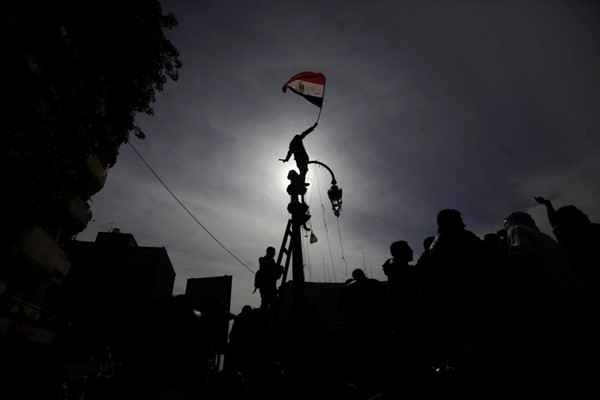Editor’s Note: Middle East Memo will be off for the holidays next week. It will return Jan. 4. Subscribers can adjust their newsletter settings to receive Middle East Memo by email every week.
Ten years ago this week, the protests were spreading across Tunisia. The young fruit seller whose name would soon reverberate across the Arab world—Mohamed Bouazizi—had set himself on fire days earlier, to protest against the police who kept harassing him for bribes. He was fed up with the kind of daily abuse by authorities at all levels of government that Egyptians, Libyans, Syrians and so many others knew all too well.
The story of what became known as the Arab uprisings, or the Arab Spring, is grimly familiar now, and every year seems to trigger a reflection of what went wrong. As Marc Lynch writes in Foreign Affairs, “The days of television screens filled with crowds chanting, ‘The people demand the overthrow of the regime’ seem like ancient history.” And yet, as he notes in that essay, the uprisings didn’t really fail, despite resurgent regimes, reactionary counterrevolutions and civil wars 10 years on. The Arab Spring has just been misunderstood.

